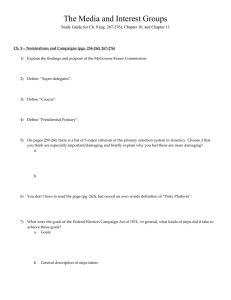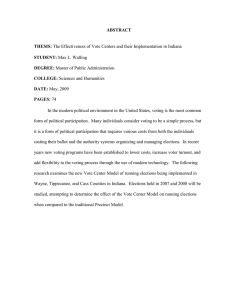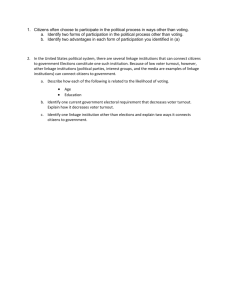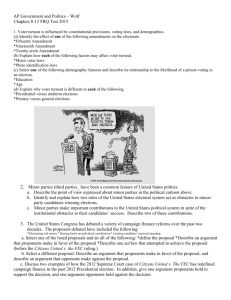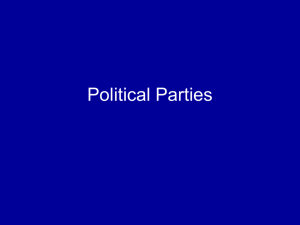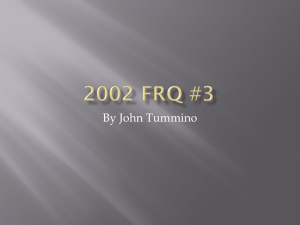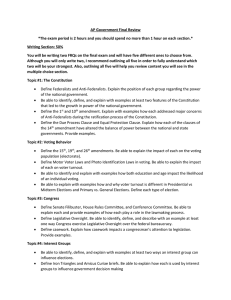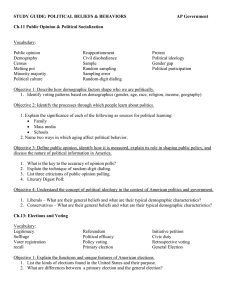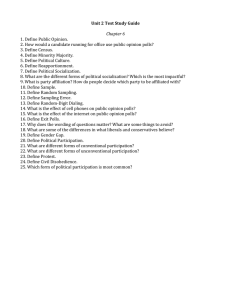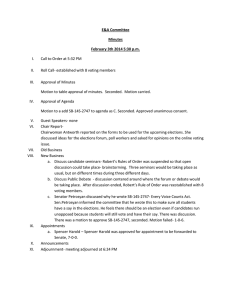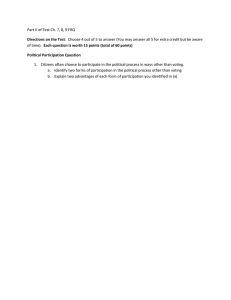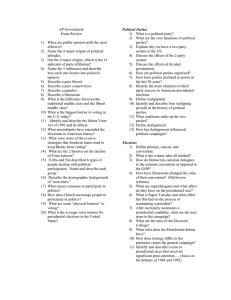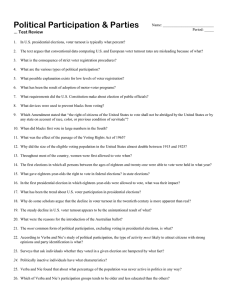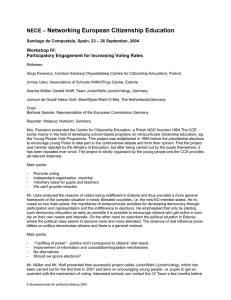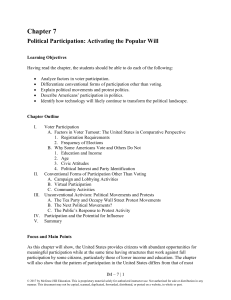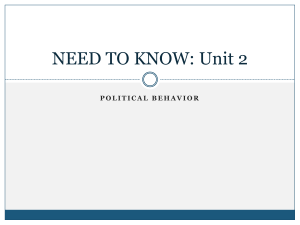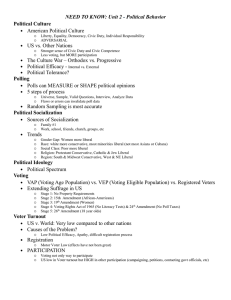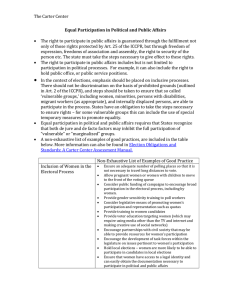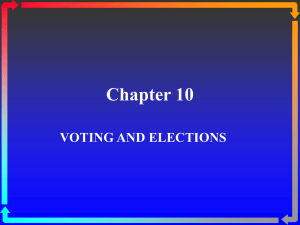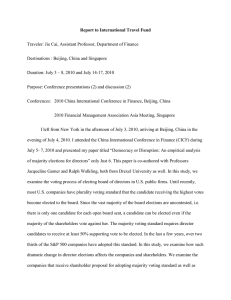Name: Unit 3: Elections and Interest Groups Study Guide for Ch. 9
advertisement
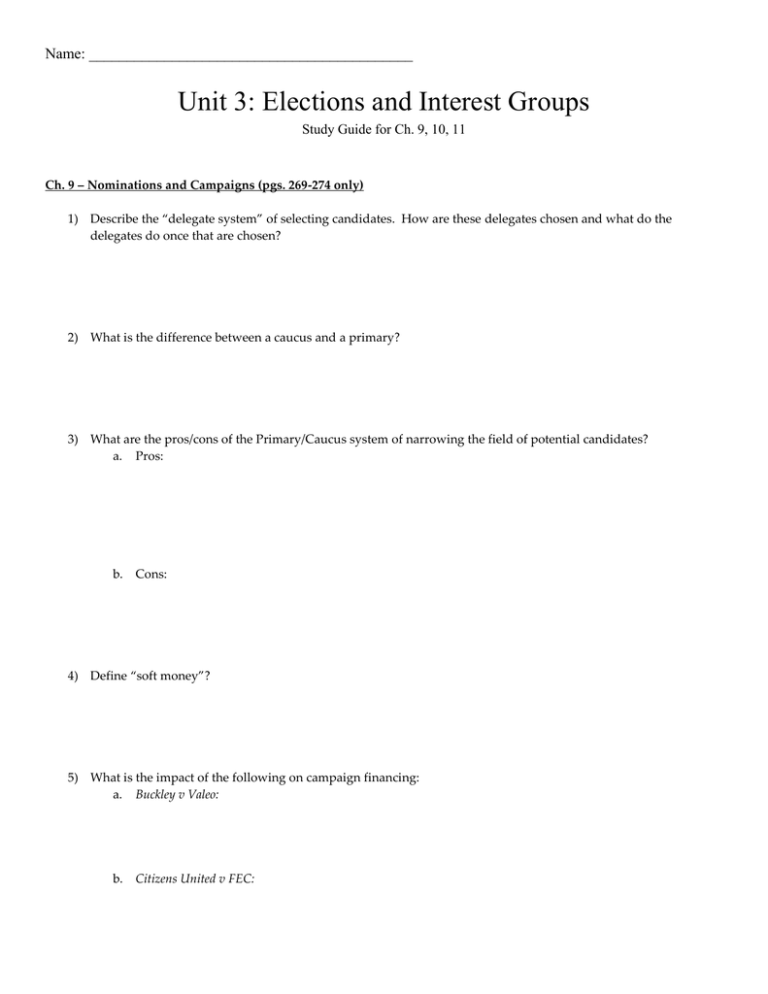
Name: ___________________________________________ Unit 3: Elections and Interest Groups Study Guide for Ch. 9, 10, 11 Ch. 9 – Nominations and Campaigns (pgs. 269-274 only) 1) Describe the “delegate system” of selecting candidates. How are these delegates chosen and what do the delegates do once that are chosen? 2) What is the difference between a caucus and a primary? 3) What are the pros/cons of the Primary/Caucus system of narrowing the field of potential candidates? a. Pros: b. Cons: 4) Define “soft money”? 5) What is the impact of the following on campaign financing: a. Buckley v Valeo: b. Citizens United v FEC: 6) What are “matching funds” and why do many politicians forego accepting them today? 7) What is a 527 group and what are their roles in recent campaigns? 8) What is a political action committee? Ch. 10 – Elections and Voting Behavior 1) Define “referendum” and “initiative” 2) What are the 3 types of elections in the United States? 3) What are some features of US elections that are unique among democracies? 4) What reasons does your textbook suggest are the reason for low voter turnout in the United States? 5) Describe the major features of the Motor Voter Act of 1993 and what effect has it had on voter registration and turnout? 6) What are some of the effects of the unique organization of the elector college election system? 7) Define “Policy Voting” 8) How has the nature of policy voting changed in the United States? 9) Define “retrospective voting” 10) In your opinion, which is a better guide for voters’ decisions? Why? 11) What is the “mandate theory of elections”? 12) Describe some of the changes in voting behavior between the 2000 and 2008 presidential elections? 13) How were these changes instrumental in helping Obama win? Ch. 11 – Interest Groups 1) How does each of the following theories see the role of interest groups in American society? a. Pluralist: b. Hyperpluralist c. Elitist 2) Define the “iron triangle” 3) What is the “free-rider” problem as it relates to interest groups? 4) What differentiates a single-interest group from a traditional interest group? 5) What factors have contributed to the recent proliferation of interest groups in the United States? 6) Explain “Interest group liberalism” 7) What are the 4 basic strategies interest groups use to influence policymaking? 8) Though they are primarily interested in influencing a congressman, in what ways can lobbyists help a member of Congress do a better job? 9) What is a public interest lobby and what unique challenges do these kinds of lobbies face? 10) What is a “PAC”? 11) In your opinion, what are the most important arguments both for and against elimination of PACs?
